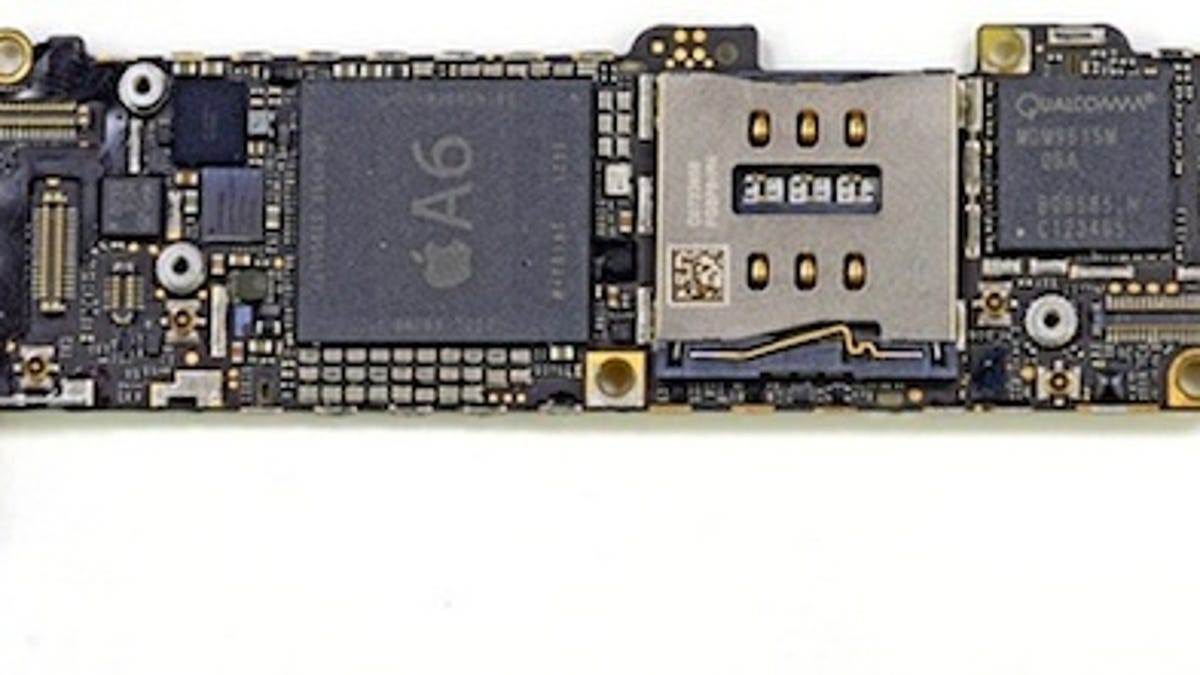Slim chance of Apple-Intel chip deal anytime soon, analysts say
Intel making processors for Apple's iPhone and iPad makes for good headlines, but it's not going to happen anytime soon, say analysts.

Intel merrily building processors for Apple's iPhone and iPad is a nice thought. So, hold on to that thought for at least a couple of years.
Until then, Samsung's in the way. That chipmaking giant has a factory in Austin, Texas, for building iPhone and iPad processors -- now and well into the future.
And Samsung seems to be doing a pretty good job. Courtroom wrangling alone won't necessarily drive an immediate wedge between the two companies if Samsung delivers the goods, which it has done pretty consistently.
Then there's the other big obstacle to an Intel deal: Taiwan Semiconductor Manufacturing Company or TSMC, the largest contract chip manufacturer in the world.
"It's happening. Apple is designing products now based on the TSMC 20-nanometer spec. Production should happen in 2014," said a chip industry source familiar with TSMC's plans.
This source said Apple will stick with Samsung for 28- and 32-nanometer production and then begin to move to TSMC at the more advanced 20-nanometer generation of manufacturing.
And this transition has been under way for a while, he said. Switching from one processor manufacturer to another is often a glacially slow process that happens in stages, taking years, he said. That's why TSMC isn't likely to happen until 2014.
And it's probably going to be an even longer wait for Intel -- if at all.
Though Intel signed a high-profile deal to make chips for Altera last month, that's a far cry from contract-manufacturing processors for a consumer electronics giant like Apple.
"I laugh when I see statements like 'Intel has to decide whether it should supply to Apple,'" Linley Gwennap, the principal analyst of The Linley Group, said in response to an e-mail query. "That's like saying, 'I need to decide whether I should date Kate Upton.'"
Humor aside, Gwennap has doubts that Intel is ready, even if Apple did make the unlikely decision to make a quick switch to Intel for iPhone and iPad processors.
"There is no doubt that Intel has the [manufacturing] process technology to build chips for Apple. But it isn't clear that they have the IP library to support a complex [system-on-a-chip] like the A6 (and presumably A7)," he said.
Chip guru Nathan Brookwood of Insight 64 also believes Intel won't be ready anytime soon.
"If it happens, it's definitely at least a couple of years away," he said. Intel won't have the system-on-a-chip tech until then that might appeal to Apple, according to Brookwood.
But he also believes the incentive is there for Apple to transition away from Samsung.
"The Samsung semiconductor guys are privy to the product plans of customers (like Apple). And if Samsung Semiconductor knows, there's a possibility that Samsung Electronics is going to find out too."
So, when could an Intel-Apple deal happen? Some kind of agreement would have to be signed long before manufacturing actually begins, according to Patrick Moorhead, principal analyst at Moor Insights & Strategy.
"I think the initial signing would be one of the most secret things at Apple...It would be [Apple CEO Tim] Cook, his most senior staff, and a very small advanced dev team," he said.
And Moorhead believes that Apple needs Intel for the future 14-nanometer manufacturing process to maintain an advantage over Samsung.
Updated on March 8 at 11:45 a.m. PST: adds comments at bottom from Patrick Moorhead.

